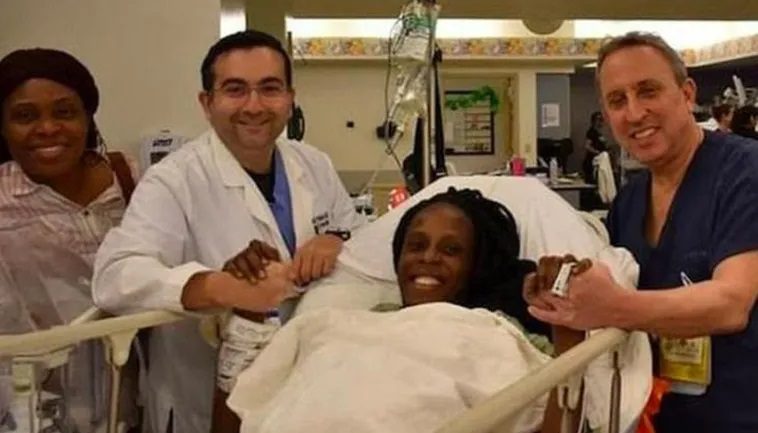Malian mother snatches crown for most babies born at once – 9 babies!
nanadwumor

It is not the first time that the world has witnessed nonuplets. Two sets of nonuplets have previously been recorded – one born to a woman in Australia in 1971 and another to a woman in Malaysia in 1999 – but none of the babies survived more than a few days.
Currently, a woman who had eight babies in the US in 2009 holds the Guinness World Record for the most children delivered at a single birth to survive.
But 25-year-old Halima Cissé looks destined to snatch the crown. That is, if her babies survive.
Miss Halima Cissé was flown Mali to Morocco to receive better medical attention for herself and babies. Dr. Youssef Alaoui, medical director at Ain Borja clinic in Casablanca, Morocco, told the AFP nes agency that the situation “extremely rate, it’s exceptional”.
Morocco’s team of doctors and paramedics assisted the delivery of the premature babies.
About 10 doctors and 25 paramedics helped in the delivery excercise.
The babies weighed between 500g and 1kg (1.1lb and 2.2lb). They wouldd be kept in incubators “for two to three months”, said Dr. Youssef Alaoui.

After weeks of media discourse, government finally stepped in to help salvage any chances of making sure that the newborns live.
Ms Cissé’ stayed for approximately two weeks at the hospital in Mali before finally flown to Morocco on 30 March.
The expectant mother finally gave birth to nine babies after five weeks at the Moroccan clinic by Caesarean section.
According to the medical director at the hospital, Ms Cissé was 25 weeks pregnant when admitted but the medical team managed to extend her term to 30 weeks.
To him, God gave them these babies and he would definitely help them to take care of the them. He expressed shock at the amazing support and thanks thrown at the family.
“Everybody called me! Everybody called! The Malian authorities called expressing their joy. I thank them… Even the president called me”, he added.
Fraternal twins — the most common kind of twins — occur when two separate eggs are fertilized by two different sperm. Each twin has his or her own placenta and amniotic sac. The twins can be two girls, two boys, or a boy and a girl.
Identical twins occur when a single fertilized egg splits and develops into two fetuses. Identical twins might share a placenta and an amniotic sac or the twins might share a placenta and each have separate amniotic sacs. Genetically, the two babies are identical. They’ll be the same sex and share physical traits and characteristics. Rarely, identical twins fail to completely separate into two individuals. These babies are known as conjoined twins.
Triplets and other higher order multiples can be identical, fraternal or a combination of both.
